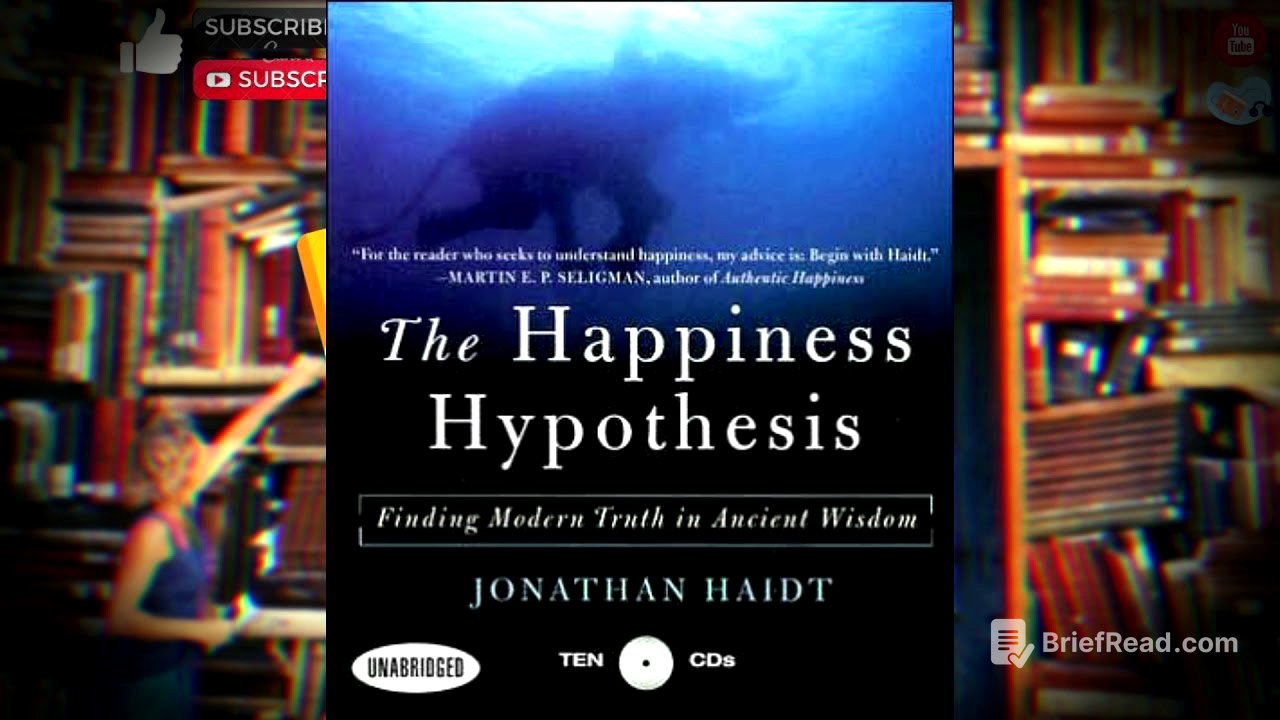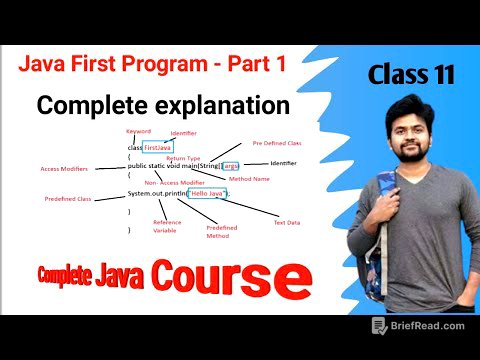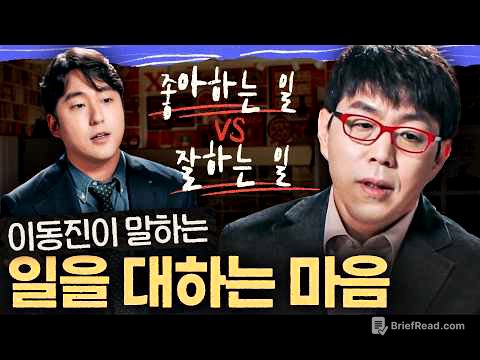TLDR;
This is a summary of "The Happiness Hypothesis" by Jonathan Haidt, narrated by George K Wilson. The book explores ten great ideas from ancient wisdom through the lens of modern psychological research, aiming to provide insights into finding happiness and meaning in contemporary life. It emphasizes the importance of understanding the divided self, the role of reciprocity and morality, and the balance between internal psychological states and external conditions.
- The mind is divided, like a rider on an elephant, with reason (the rider) often struggling to control emotions (the elephant).
- Happiness comes from both internal psychological adjustments and external conditions, requiring a balance between ancient wisdom and modern science.
- Reciprocity and strong social connections are crucial for well-being, while unchecked self-interest and moral hypocrisy can undermine happiness.
- Adversity, when managed properly, can lead to personal growth and a deeper understanding of life's meaning.
- A sense of purpose is achieved by aligning one's life across physical, psychological, and socio-cultural levels, integrating love and work into a coherent whole.
Introduction [0:33]
The author introduces the paradox of abundant wisdom in modern life, where the sheer quantity of available advice undermines our ability to engage with it deeply. The book aims to savor ten great ideas discovered by various civilizations, questioning them with scientific research to extract lessons applicable to modern lives. The author, a social psychologist, integrates ancient wisdom with modern psychology to tell a story about human flourishing and overcoming obstacles to well-being. The book is structured around understanding the mind, social life, sources of happiness, conditions for growth, and the quest for meaning.
The Divided Self [14:00]
The chapter introduces the concept of the divided self, comparing the mind to a rider on an elephant, where the rider (conscious reasoning) has limited control over the elephant (emotions). Ancient metaphors from Buddha, Plato, and Freud are used to illustrate this division. The author explains four divisions within the mind: mind versus body, left versus right brain hemispheres, new versus old brain structures, and controlled versus automatic processes. Modern psychology supports this view, showing that automatic processes often override conscious intentions, and the mind is a confederation of modules.
Changing Your Mind [1:17:35]
This chapter addresses the idea that controlling our interpretations can control our world, a concept popularized by self-help gurus. It questions the effectiveness of mere cognitive insight, arguing that lasting change requires retraining the "elephant" (automatic processes). The chapter discusses the "lycometer," a metaphor for the brain's automatic like/dislike reactions, and the negativity bias, which makes us more sensitive to threats. It introduces three tools for retraining the elephant: meditation, cognitive therapy, and Prozac, explaining how each can shift our affective style towards greater happiness.
Reciprocity with a Vengeance [2:21:58]
The chapter explores reciprocity as a fundamental tool for social interaction, highlighting its importance through examples like the opening scene of "The Godfather." It discusses how reciprocity evolved into a moral emotion, enabling cooperation and larger social groups. The chapter also examines how reciprocity can be exploited, as demonstrated by Robert Cialdini's research on compliance techniques. It emphasizes the importance of balancing reciprocity with discernment to avoid manipulation and build healthy relationships.
The Faults of Others [3:02:54]
This chapter addresses the common human tendency to see faults in others while being blind to our own, a phenomenon highlighted by Jesus and Buddha. It explores the psychological mechanisms behind this hypocrisy, including confabulation, the interpreter module, and self-serving biases. The chapter introduces the concept of moral hypocrisy, where people prioritize the appearance of morality over its reality. It also discusses naive realism, the belief that we see the world as it truly is, and the myth of pure evil, which leads to cycles of violence. The chapter concludes by offering ways to reduce self-righteousness and promote understanding.
The Pursuit of Happiness [4:06:42]
The chapter examines the pursuit of happiness, contrasting ancient philosophies that emphasize internal contentment with modern research highlighting the importance of external conditions. It introduces the progress principle, which states that pleasure comes more from making progress toward goals than from achieving them. The chapter also discusses the adaptation principle, which explains why we quickly adapt to both positive and negative changes. It presents the happiness formula (H = S + C + V), emphasizing the role of voluntary activities in achieving lasting happiness. The chapter concludes by exploring the importance of aligning one's life with personal strengths and values.
Love and Attachments [5:22:13]
This chapter explores the critical role of love and attachments in human well-being, drawing on the work of Harry Harlow and John Bowlby. It discusses Harlow's experiments with rhesus monkeys, which demonstrated the importance of contact comfort, and Bowlby's attachment theory, which explains how early relationships shape our emotional development. The chapter also examines adult attachment styles and the importance of secure attachments for healthy relationships. It contrasts passionate and companionate love, arguing that true love is based on strong companionate love with added passion. The chapter concludes by discussing the importance of social connections and the dangers of extreme personal freedom.
The Uses of Adversity [6:41:49]
The chapter explores the adversity hypothesis, which suggests that people need adversity to reach higher levels of strength and personal development. It discusses post-traumatic growth, the positive changes that can result from overcoming trauma. The chapter examines how adversity can reveal hidden abilities, strengthen relationships, and change priorities. It also discusses the importance of sense-making and finding meaning in suffering. The chapter concludes by exploring the role of optimism, social support, and writing in coping with adversity.
Divinity With or Without God [7:38:14]
This chapter explores the human perception of a third dimension, divinity, beyond the horizontal dimensions of closeness and hierarchy. It discusses the ethic of divinity, which emphasizes purity, sacredness, and living in a way that honors the divine within. The chapter examines how disgust functions as a guardian of the body and how religious practices aim to connect individuals with something larger than themselves. It also discusses the role of awe and self-transcendence in spiritual experiences. The chapter concludes by exploring the tension between the ethic of divinity and the ethic of autonomy in modern society.
Happiness Comes From Between [10:38:20]
The final chapter synthesizes the book's key themes, arguing that happiness comes from the relationships between different aspects of our lives. It emphasizes the importance of love, work, and connection to something larger than the self. The chapter discusses the need for coherence across physical, psychological, and socio-cultural levels to find meaning and purpose. It concludes by reiterating the importance of balance and integration in achieving a fulfilling life.









